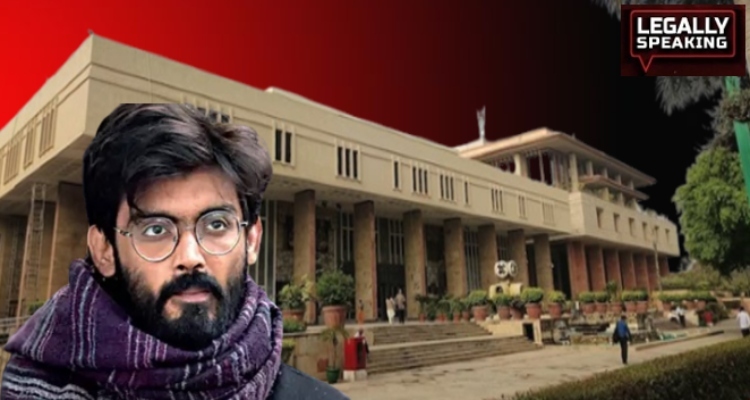
The Delhi High Court on Tuesday directed the trial court to decide by next month a plea by student activist Sharjeel Imam in connection with a 2020 communal riots case involving allegations of sedition and unlawful activities.
A bench of Justices Suresh Kumar Kait and Manoj Jain was informed by Imam’s counsel that his plea before the trial court is scheduled for February.
In response, the bench directed the trial court to decide and pronounce the judgment on the application within 10 days from the next date of hearing in the trial court, which is listed for February 7. Imam, seeking bail under section 436A of the CrPC, argued that he has been in custody for the last four years, and the maximum sentence for the offense under section 13 of the Unlawful Activities (Prevention) Act is seven years if convicted.
According to Section 436-A of the CrPC, a person can be released from custody if they have spent more than half of the maximum sentence prescribed for the offense. The high court, while disposing of Imam’s plea challenging the trial court’s January 24, 2022, order denying him bail, stated that if he is granted bail by the lower court under section 436-A of the IPC, that will conclude the matter. If denied bail, he has the right to file an appeal based on the grounds mentioned in the plea or any other ground.
During the hearing, Imam’s counsel informed the court that out of a total of 43 prosecution witnesses in the case, 22 have been examined so far. The high court had previously emphasized that, since section 124A (sedition) of the IPC has been kept in abeyance on the directions of the Supreme Court, it must examine the trial court’s bail rejection order considering the other penal sections applied against Imam.
In 2022, the trial court had framed charges against Imam under Sections 124A (sedition), 153A (promoting enmity), l53B (imputations prejudicial to national integration), 505 (statements conducing to public mischief) of IPC, and Section 13 (punishment for unlawful activities) of the Unlawful Activities Prevention Act. The prosecution alleges that Imam made speeches at Jamia Millia Islamia on December 13, 2019, and at the Aligarh Muslim University on December 16, 2019, where he threatened to cut off Assam and the rest of the Northeast from the country.
Imam was booked in the case registered by Delhi Police’s Special Branch. Initially registered for the offense of sedition, Section 13 of UAPA was invoked later. He has been in custody in the case since January 28, 2020. In his petition before the high court, Imam contends that the trial court “failed to recognize” that, pursuant to the directions of the top court, the basis for the dismissal of his earlier bail plea—the charge of sedition—no longer existed, and therefore, relief must be granted to him.
On May 11, 2022, the Supreme Court stayed, until further orders, the registration of FIRs, probes, and coercive measures for the offense of sedition across the country by the Centre and the states until an appropriate forum of the government re-examines the colonial-era penal law.




